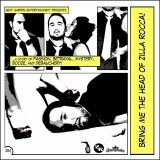It's the right thing to do
 Art by bijijoo A few years ago, I was on a cruise as war between Lebanon and Israel broke out. Between greasy buffets and ports-of-call, I had to rely on nothing but CNN to keep up. The coverage was relentless but oddly uninformative--the biggest developments were the back-and-forth accusations between official spokesmen. Hard data and substantive analyses ceded to soft-lit man-on-the-street interviews; each side tried their best to play the victim, and both seemed to believe it. With every passing day, the clash of media relations took precedence over military formations. It felt like less a battle of bodies than a war for hearts and minds. PR agents were the new ground troops; loaded images (regardless of how true or representative they were) were the new weaponry of choice. This blurring of military campaign and ad campaign was even more explicit in the Bush administration's 2003 scramble to war. From Colin Powell's presentation before the UN, to constant appearances by top-ranking officials on news shows, to headlines blaring cherry-picked evidence, the run-up to conflict was rolled out just like a Hollywood blockbuster or a worldwide product launch. Hazy aerial shots of supposed chemical labs were broadcast over and over like corporate logos. Talking-point slogans ("weapons of mass destruction" "mushroom cloud," "slam dunk") and suggestions (Iraq = 9/11, Nigerian yellowcake uranium) were repeated with the faithfulness of taglines. The roots of this stylized warfare can be largely traced back to the Gulf War of 1990 and 1991. Although far more primitively, that war was also carefully managed and selectively represented. After the messiness of Vietnam, Americans were treated to night-vision explosions that looked as clean and fun as 16-bit Nintendo games. They could root for clear-cut heroes like Generals Schwarzkopf and Powell, and against villains like Saddam Hussein. (For the sequel, we were given an entire deck of villains to oppose.) But in a prelude to embedded journalism, most of the information reported to the public came directly from the military, and both coverage and access were subject to governmental pre-approval and censorship. That's the funny thing about public opinion. People's views are far more malleable than they'd like to admit, and advertising is far more influential than we realize. As media's reach becomes even more pervasive and multifaceted, it's far easier to run whisper camapaigns. It's far easier to distort the truth just by repeating the lie enough times. (According to a recent Pew poll, 12% of surveyed Americans still think Barack Obama is Muslim. 25% doesn't quite know what he is and 1% is pretty sure he's Jewish.) It's become about defining your opponents in two or three catchy terms, burying the inconvenient subplots to sell the public clear narratives. As a former TV adman, Steinski understands how the game is played. His music is as much a critique of mass media as a celebration of its profound influence. In his song, "It's Up To You" (Television Mix), he pays tribute to the the idiot box while also thoroughly undermining it. And not unlike Jon Stewart or Stephen Colbert, he calls out showmanship with the skill of a showman himself. He does this by slicing together the views of pop-culture, establishment-culture and counterculture figures like Howard Beale, George H.W. Bush, Dan Quayle, Jello Biafra and Mario Savio, letting them collide with a bumper-car glee. He also sets that echo chamber of ideas to snappy beats, making it go down as palatably as a fast-food jingle. Steinski's most subversive act is to push you into thinking critically. By repeating Bush insisting of the Gulf War, "It's the right thing to do," we're left with a feeling of ambivalence. Put in a speech, that line might really inspire assent, but looped out of context, it sounds more like propaganda. It's even more thrillingly confusing when the title sample keeps promising, "It's up to you." In the most basic sense, that may be true, but that an outside voice has to remind us makes the statement suddenly suspect. That the phrase keeps repeating drains it of meaning, reducing it to a motivational speaker's mantra or advertising posing as self-empowerment ("Obey your thirst [as long as it wants Sprite].") Steinski adding in a wicked laugh midway through even makes you question his intentions, which, of course, is exactly what he wants. Still, even as Steinski satirizes (and reflects) the noise of mass-media, he does reserve his best shots for Bush I. He follows a public service ad for the American Mental Health Fund ("Sometimes, extreme behavior can be the warning sign of a mental illness. Learn to see the sickness.") with the President justifying the use of force. Steinski also intercuts/undercuts Bush's argument for war with his own acidic asides. "I am certain our cause is just" is quickly followed by Bush himself adding, "a gallon of gas," presaging exactly what YouTube collagists would be doing a decade later. Steinski treats "and I am certain our cause is right" even more derisively, interjecting a snippet from David Mamet's House of Games: "Give me the goddamn money." However, the most telling quote is Bush's first appearance when he declares, "Americans know power belongs in the hands of people." In other words, he's advertising ideals like plurality and democracy to sway popular opinion for his own agenda. And yet, in his own persuasively roundabout way, Steinski is making a similar case and luring us to buy into it. He's also using the media to create and disseminate his persona. And he's also winning us over by flattering us and playing on our emotions. The fact that he manages to include that many complicated levels of discourse (and self-awareness) in something that still sounds so playful is what separates and elevates his art. That he manages to reveal the strings of so many talking heads, to expose conventional wisdom as pitch and to render the subliminal supraliminal, is why I find Steinski so brilliant. Of course, whether or not you choose to agree, that's up to you. * MP3: "It's Up To You" (Television Mix) - Steinski from What Does It All Mean?: A 1983-2006 Retrospective [Buy it] * Previously: Something is wrong here, something is terribly wrong * Website: Steinski |





















Comments on "It's the right thing to do"
-
 Ana Saturno said ... (4:17 AM) :
Ana Saturno said ... (4:17 AM) :
-
 www.muebles-oferta.com said ... (3:05 AM) :
www.muebles-oferta.com said ... (3:05 AM) :
-
 sofialery said ... (3:01 AM) :
sofialery said ... (3:01 AM) :
-
 Unknown said ... (4:22 AM) :
Unknown said ... (4:22 AM) :
-
 al3ab banat01 said ... (8:42 AM) :
al3ab banat01 said ... (8:42 AM) :
-
 Asim said ... (3:02 PM) :
Asim said ... (3:02 PM) :
post a commentHi!
I found your blog looking for some information on Steinski, and I found much more than I expected. Thanks for your articles, I think they are great.
I'll keep on reading your blog.
It can't really have effect, I think this way.
It is best ever post. I am attract your mind on awriter.org/essay-writing-services for essay writing tips.
Great! Thanks for sharing the information. I like this information. Keep posting
happy wheels game | friv4 | games for girls | games girls | happy wheels unblocked
العاب بنات يحتوي موقعنا على العاب تلبيس بنات متجددة باستمرار وكل مايتعلق بصنف العاب بنات تلبيس ومكياج وطبخ و العاب فلاش اولاد ومرحبا في العاب تلبيس ...
العاب
العاب اطفال
العاب باربي
العاب مكياج
العاب كراش
العاب مغامرات
This is my first time I visit here and I found so many interesting stuff in your blog especially it's discussion. Thank you so much for sharing this great blog. Keep it up.
casio